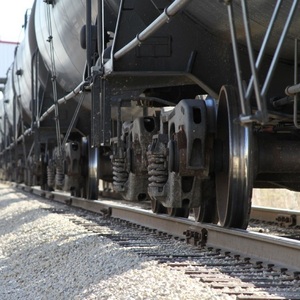STB takes initial actions aimed at improving rail service

May 9, 2022
BY Erin Krueger
The Surface Transportation Board on May 6 announced it will require certain railroads to meet additional reporting requirements as part of an initial action aimed to improve rail service delays that have severely impacted several industries, including ethanol producers.
The STB’s May 6 decision requires all Class I carriers to submit several specific reports on rail service, performance, and employment. In addition, BNSF Railway Company (BNSF), CSX Transportation (CSX), Norfolk Southern Railway Company (NS), and Union Pacific Railroad Company (UP), are required to submit service recovery plans, progress reports, historical data, and participate in bi-weekly conference calls with STB staff.
Data and information gathered through these efforts will improve the STB’s assessment of further actions that may be warranted to address the acute service issues facing the rail industry. The STB said the measures will also help promote industry-wide transparency, accountability and improvements in rail service.
Advertisement
The STB’s decision follows a public hearing held by the agency on April 26-27 focused on recent rail service problems and recovery efforts involving several Class I carriers. The Renewable Fuels Association and Growth Energy testified at the hearing, explaining how rail delays and disruptions are impacting the operations of U.S. ethanol producers and their customers.
“Our freight rail service hearing highlighted the grave concerns of shippers and others regarding freight rail service,” said Martin J. Oberman, chairman of the STB. “While the railroads have faced certain challenges over the last few years, the evidence produced at last week’s hearing is overwhelming that the railroads’ longstanding practice of reducing operating ratios by cutting employment levels, mothballing locomotives, and eliminating other essential resources are the central reasons why farmers have been hours away from depopulating herds, manufacturing facilities have reduced operating hours, and shippers cannot get their products to market on time or receive essential raw materials for their companies. These failures are harming the nation’s economy and, in my view, are contributing to the inflationary forces affecting food and fuel in particular.”
Advertisement
“Requiring additional reporting from railroads may not be the final result of our hearing on service issues,” he continued. “Today’s decision is an immediate step the Board can take to enable needed monitoring of the improved efforts the railroads have been promising for months, and to determine if additional regulatory steps are necessary to promote reliable service.”
The new reporting requirements are in addition to previous reporting requirements implemented by the STB several years ago following a period of similar rail service problems, which also impacted ethanol producers. The STB in 2014 began requiring Class I railroads to begin filing weekly data reports regarding service performance, including certain data on ethanol shipments. Those requirements were also put in place in an effort to promote industry-wide transparency, accountability and improvements in rail service.
Additional information is available on the STB’s website.
Related Stories
CountryMark on July 22 celebrated the completion of more than $100 million in upgrades at its refinery in Indiana, including those related to soybean oil storage. The facility produces renewable diesel via coprocessing technology.
ATOBA Energy and Air Moana are partnering to implement scalable solutions for the supply of SAF. The collaboration aims to ensure long-term SAF availability while supporting local initiatives to develop sustainable fuel production in Tahiti.
While final IRS guidance is still pending, the foundation of the 45Z program is well defined. Clean fuel producers should no longer be waiting; they can now move forward with critical planning and preparation, according to EcoEngineers.
Neste Corp. on July 24 released second quarter results, reporting record quarterly renewable product sales volumes despite weaker margins. SAF sales were up nearly 80% when compared to the first quarter of 2025.
Valero Energy Corp. on July 24 released second quarter results, reporting a profitable three-month period for its ethanol segment. The renewable diesel segment posted a loss, but the company’s new sustainable aviation fuel (SAF) unit operated well.
Upcoming Events










